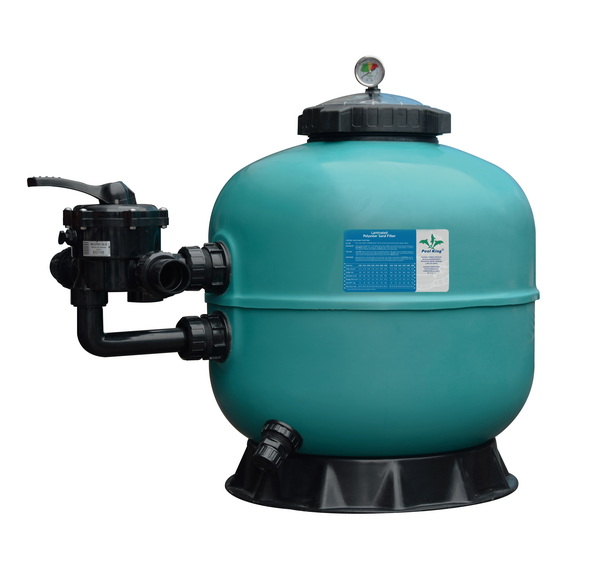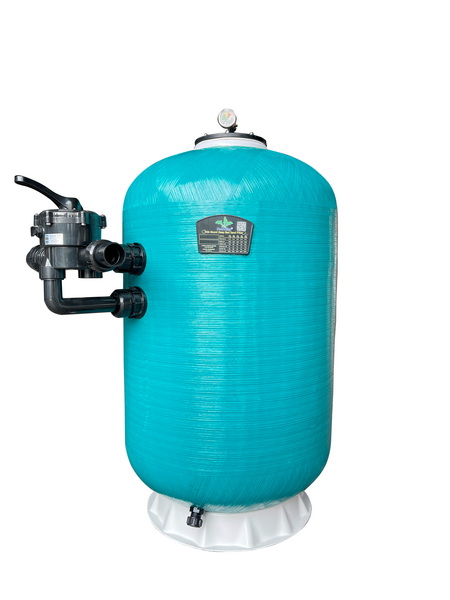Views: 222 Author: Tina Publish Time: 2025-09-13 Origin: Site








Content Menu
● Understanding Pool Filter Sand
>> Key Features of Pool Filter Sand
● Types of Sand for Pool Filters
>> Silica Sand
>> Zeolite Sand
>> Glass Sand
>> Polymer Sand
● How to Choose the Right Sand for Your Pool Filter
>> Match Sand Grain Size to Filter Specifications
>> Consider Water Chemistry and Pool Usage
>> Budget and Maintenance Frequency
● Maintenance Tips for Pool Filter Sand
● Common Pool Filter Sand Grades and Sizes
>> 1. How often should pool filter sand be replaced?
>> 2. Can I use regular sand in my pool filter?
>> 3. What is the difference between silica sand and zeolite sand?
>> 4. Is glass sand better than silica sand?
>> 5. How do I know if my pool filter sand needs replacing?
Ensuring crystal-clear water in a swimming pool depends heavily on the effectiveness of the pool filtration system. One of the most critical components in many filtration systems is the pool filter sand. Selecting the right sand for a pool filter directly impacts water quality, filter longevity, and maintenance frequency. This guide explores the different types of sand used in pool filters, their characteristics, benefits, and guidance on choosing the best sand for your pool filter.

Pool filter sand is not ordinary sand found on beaches or playgrounds. It is a highly specialized filtration medium made primarily from high-quality silica. The sand is carefully processed to have uniform particle sizes and minimal impurities, ensuring it effectively traps dirt, debris, and microscopic contaminants to keep pool water clean and safe for swimmers.
- Purity: Typically composed of pure silica, often in the form of quartz grains.
- Uniform grain size: Usually between 0.45 mm to 0.55 mm to optimize filtration efficiency.
- Durability: Designed to withstand repeated cycles of filtering and backwashing.
- Effectiveness: Traps particles as small as 20 microns or finer depending on the sand type.
Several types of filter sands are commonly used in pool sand filters, each with distinct advantages.
Silica sand is the most common and traditional type of pool filter sand. Made from crushed quartz, its grains have sharp edges that help to trap dirt and debris as water passes through the filter bed. Silica sand generally filters particles down to about 20 microns.
- Advantages: Affordable, widely available, and effective for most pool filtration systems.
- Lifespan: Typically lasts 3 to 5 years before needing replacement.
- Grades: Popular grades include 20 mesh (0.45 mm - 0.55 mm size), 20/40 mesh (0.45 mm - 0.85 mm), and 30/50 mesh for coarser particle filtration.
Zeolite is a natural volcanic mineral with superior filtration efficiency. It can filter particles smaller than silica sand and also has natural ion-exchange properties that help remove ammonia and chloramines, contributing to better water chemistry.
- Advantages: Enhanced filtering, chemical removal properties, less frequent backwashing.
- Lifespan: Around 3 to 5 years.
- Use case: Suitable for pool owners looking for improved water quality and reduced chemical odors.
Made from recycled crushed glass, glass sand is an eco-friendly alternative to silica. It has rounded edges, making it less abrasive on filter components and systems, extending the life of the filter.
- Advantages: Finer filtration (particles as small as 2 microns), longer lifespan (up to 7 years), environmentally friendly.
- Considerations: Slightly higher upfront cost but reduced maintenance over time due to durability.
A newer innovation, polymer sand combines polymer beads with sand particles to enhance filtration and reduce the frequency of backwashing cycles.
- Advantages: Improved filtration efficiency, less water use during backwashing.
- Usage: Still emerging in popularity and availability.

Choosing the best sand depends on several factors including the type of pool filter, water quality requirements, budget constraints, and maintenance preferences.
Most pool filters specify the grade of sand suitable for use. For example, 20/40 mesh is a common recommendation because it strikes a balance between filtration efficiency and water flow rate. Using sand that is too fine or too coarse can reduce system performance or damage the filter.
If the pool experiences high bather loads or has water chemistry issues such as ammonia, zeolite sand's ion-exchange abilities could provide better results. For eco-conscious users, glass sand offers sustainable benefits with longer usability.
Silica sand tends to be the most affordable but requires more frequent replacement. Glass sand, while costlier, has a longer lifespan and may save money on maintenance and water use over time.
Maintaining your pool filter sand is just as important as choosing the right type:
- Regular Backwashing: Helps remove trapped debris and refreshes the sand bed, maintaining filtration efficiency.
- Replacing Sand: Typically every 3-5 years for silica sand, longer for glass sand. Signs to replace include cloudy water, reduced flow, or sand grains breaking down.
- Avoid Using Beach or Playground Sand: Such sand does not have the correct grain size or purity and can damage the filter.
| Sand Grade | Grain Size (mm) | Best Use |
|---|---|---|
| 20 Mesh Silica | 0.45 - 0.55 | Standard pool filters |
| 20/40 Mesh Silica | 0.45 - 0.85 | Versatile filtration |
| 30/50 Mesh Silica | 0.6 - 1.2 | Larger particle trapping |
| Glass Sand | ~0.4 - 0.6 | Fine filtration, eco-friendly |
| Zeolite Sand | Varies | Superior filtration, chemical removal |
Choosing the right sand for a pool filter is essential for maintaining clear, safe, and healthy pool water. Silica sand remains the go-to choice for most pool owners due to its affordability and effectiveness. However, alternatives like zeolite and glass sand offer enhanced performance and environmental benefits that are worth considering for those seeking improved water quality and longer filter life. Proper maintenance and timely sand replacement are key to maximizing filtration efficiency and extending the life of your pool system.
With the right sand and care, pool owners can enjoy sparkling, clean water and an optimized filtration system year-round.

Typically, pool filter sand should be replaced every 3 to 5 years for silica sand and up to 7 years for glass sand, depending on usage and maintenance.
No, regular sand is not suitable because it doesn't have uniform grain size or purity and can harm the filter system.
Silica sand is traditional and effective for debris filtration; zeolite sand filters finer particles and reduces chemicals like ammonia, improving water chemistry.
Glass sand offers finer filtration and longer lifespan, plus it's eco-friendly, but it has a higher upfront cost compared to silica sand.
Signs include cloudy pool water, reduced water flow, frequent filter clogging, or sand grains breaking down into fine dust.
[1](https://beatbot.com/blogs/pool-cleaning-kits/different-types-of-sand-for-pool-filters-and-how-to-choose-the-right-one)
[2](https://www.aquaheat.cn/mediacenter/info.aspx?itemid=2259&lcid=21)
[3](https://flipr.shop/blogs/flipr-blog-pools/types-of-pool-filter-sand-3)
[4](https://wushui.hbchanyelian.com/goodsinfo-10801.html)
[5](https://hyclor.com.au/best-sand-for-pool-filter/)
[6](https://ca.world.taobao.com/product/%E6%B3%B3%E6%B1%A0%E8%BF%87%E6%BB%A4%E7%A0%82%E7%BC%B8%E7%9F%B3%E8%8B%B1%E7%A0%82.htm)
[7](https://www.consolidatedagg.com/different-types-of-filter-sands/)
[8](http://zh.greatpoolproject.com/project/stainless-steel-pool-filter-for-large-commercial-swimming-pool-filtration-system/)
[9](https://www.swimmingpool.com.sg/articles/how-to-choose-the-right-filter.html)
[10](https://thesummerpools.com/zh/blogs/pool-maintenance/how-to-choose-the-best-pool-filter-for-pool)
